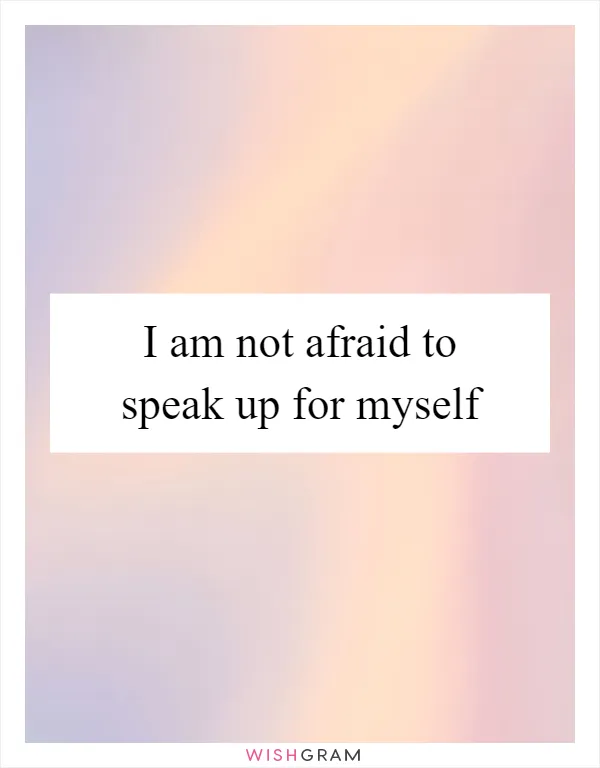I am not afraid to speak up for myself
It can be difficult to speak up for yourself, especially when you feel like your voice may not be heard or valued. However, it is important to remember that your thoughts and feelings are valid, and you have the right to express them. By speaking up for yourself, you are asserting your own needs and boundaries, and taking control of your own life.
When you speak up for yourself, you are also setting an example for others. By showing that you are confident and assertive, you are encouraging others to do the same. This can lead to a more positive and productive environment, where everyone feels comfortable expressing their thoughts and ideas.
Of course, speaking up for yourself can be intimidating. It may feel like you are putting yourself in a vulnerable position, or risking conflict with others. However, it is important to remember that you are not alone. There are many resources available to help you build your confidence and assertiveness, such as therapy, support groups, or self-help books.
One way to start speaking up for yourself is to practice assertive communication. This means expressing your thoughts and feelings in a clear and respectful way, while also listening to the other person's perspective. By using "I" statements and avoiding blame or criticism, you can communicate your needs without causing unnecessary conflict.
Another important aspect of speaking up for yourself is setting boundaries. This means being clear about what you will and will not tolerate, and enforcing those boundaries when necessary. By setting boundaries, you are showing others that you respect yourself and your own needs.
Overall, speaking up for yourself is an important part of self-care and personal growth. By asserting your own needs and boundaries, you are taking control of your own life and setting an example for others. So repeat after me: "I am not afraid to speak up for myself".
